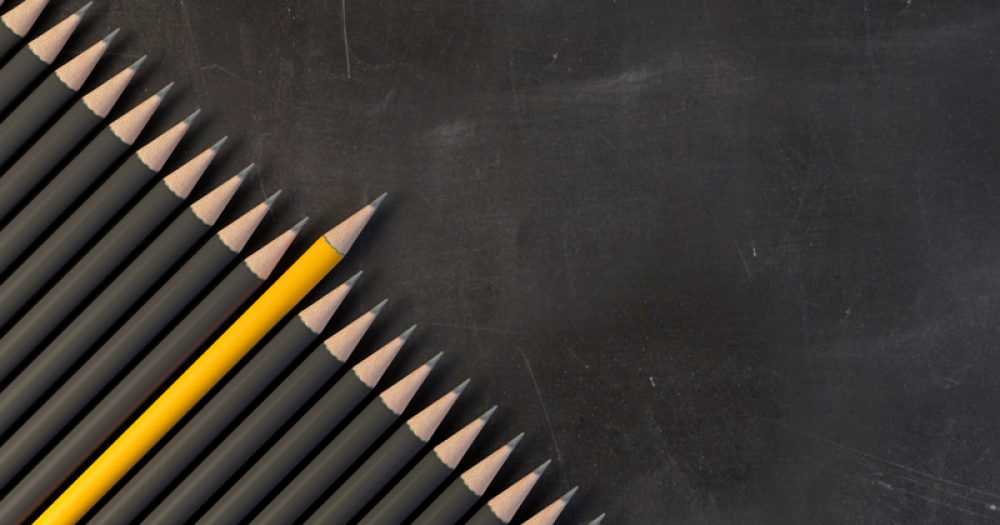Primary-to-secondary transition faces new challenges as a result of the Covid crisis but recent research can help ensure schools make the best of it. Ellie Mulcahy explains
Research suggests that most children anticipate transitions in positive terms and successfully navigate them. However, the primary to secondary school transition nonetheless presents a variety of challenges, many of which will become more acute in light of the Covid-19 pandemic. Fortunately, recent research can point schools and policy makers towards evidence informed approaches to minimising disruption and securing positive transitions.
A recent study by researchers at the University of Dundee was one of the first to take a longitudinal approach to examining pupils’ attitudes to transitions. Pupils were surveyed over three years across their primary to secondary transition. At the end of primary school, social concerns – including losing old friends and bullying – are at the forefront of pupils’ minds. Yet pupils also express excitement about the opportunity to make new friends.
Fortunately, social concerns fall away over the first year of secondary school, but for now, pupils starting year 7 this September are likely to be worried about the impact of missed induction days on their ability to meet new classmates, particularly after struggling with a disrupted ending at primary school. Transition support over the summer and during the first term should therefore address this and capitalise on pupils’ excitement to make new friends by providing opportunities for them to build networks and have positive shared experiences, online or in person.
Over half of teachers had not previously visited classrooms in the other key stage
Although pupils’ pre-transition worries focus on social concerns, other research finds that academic challenges present themselves in the first years of secondary school. A 2019 survey of 500 teachers highlighted a lack of continuity in the curriculum with only 21 per cent of secondary and 12 per cent of primary teachers ‘agreeing’ that there is a fluid transition between Maths curricula. Limited knowledge of the primary/secondary curriculum and a lack of communication between teachers from different key stages were the most commonly identified issues.
Based on studies such as this, a transition project in North Yorkshire brought key stage 2 and key stage 3 teachers together to address this issue in the Maths curriculum. Over half of teachers involved had not previously had the opportunity to speak to or visit classrooms in the other key stage and the project led to almost all of the participating teachers adjusting their curriculum. With most pupils likely to be absent from school this summer term key stage 2 and key stage 3 teachers will need to come together so that year 7 teaching can pick up from year 6 teaching pre-lockdown. Any schools holding ‘summer camps’ might want to involve teachers from both phases if at all possible.
A third study, led by a team of academics at the University of Leeds, is investigating literacy and language challenges associated with transition. Researchers analysed worksheets, assessments, textbooks and lesson recordings. This flagged-up stark increases in the use of technical vocabulary which makes life difficult for pupils struggling to bridge the gap to key stage 3. In particular, the quantity of vocabulary pupils are exposed to increases by three to four times compared to primary school and the characteristics of language also change.
As subject experts, secondary school teachers tend to explain technical terms, but more general academic vocabulary sometimes falls through the cracks. The authors give the example of Science teachers explaining ‘photosynthesis’, but in so-doing, using unfamiliar terms such as ‘influence’ and ‘factor’. Schools and teachers would therefore do well to ensure year 7 pupils are equipped with the language they need to access the secondary curriculum, something for which numerous word-lists and strategies are available.
Finally, research suggests we need a shift from the common perception that transitions occur at a single point in time. The Dundee study conceptualised primary-secondary transitions as occurring over a period of two years, showing that some issues do not arise until well into year 7 or even year 8. Additionally, whilst much thought is currently being given to pupils moving into year 7, it is worth noting that important transitions take place across all phases, especially in early years and further education. Over the next few weeks at CfEY we will therefore be doing more work to highlight good practice in these critical phases too.








I have just recently discovered you and wow how amazing I can’t wait for the updates everyday.
I am an educational consultant and before lockdown I was working in Primary Schools training teachers and also trainee teachers. Plus I worked on supply and had just got a job as a manager of summer and holiday camps. Lockdown has meant no pay and for people such as myself it has meant re -inventing ourselves.
I am now teaching English online and just joined a start up company that provide support for families with homework and learning online in this country.
I wonder how many people are in similar circumstances to me and I would be very interested to find out what people have done.
A great article Ellie. I came across it as I am currently researching KS2 to KS3 transition. I found the links to recent research studies very useful – thank you! I agree with your recommendation that KS2 and KS3 teachers should come together to strengthen transition but there are many barriers stopping this from happening – particularly in my Local Authority where our Y6 cohort have gone to over 20 different schools! I would be grateful if you could find time to get in contact with me about my research and perhaps swap references!